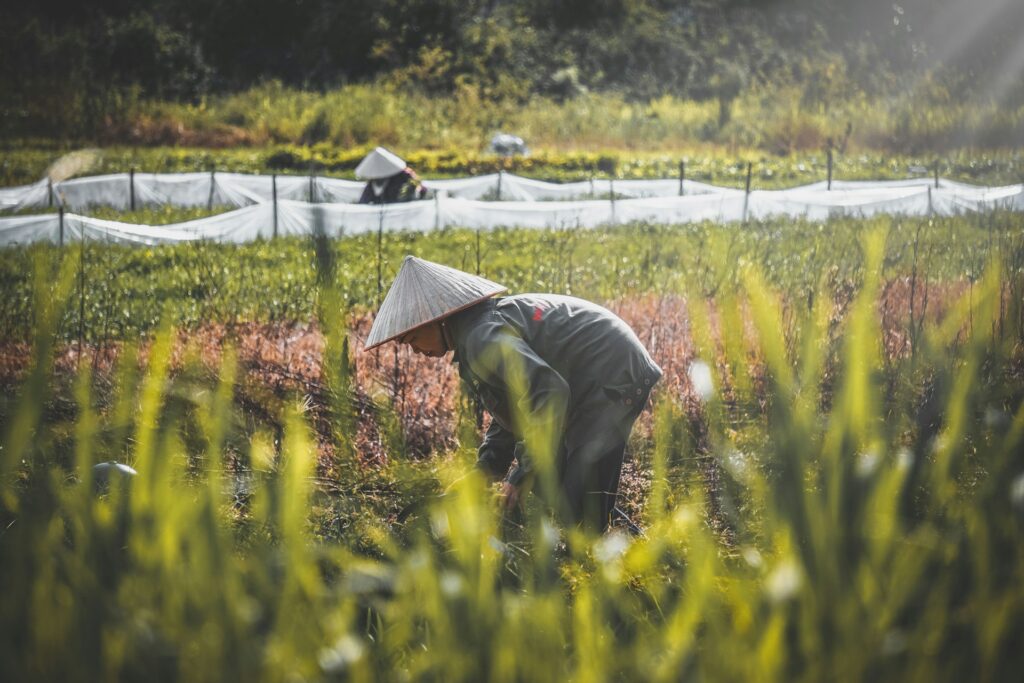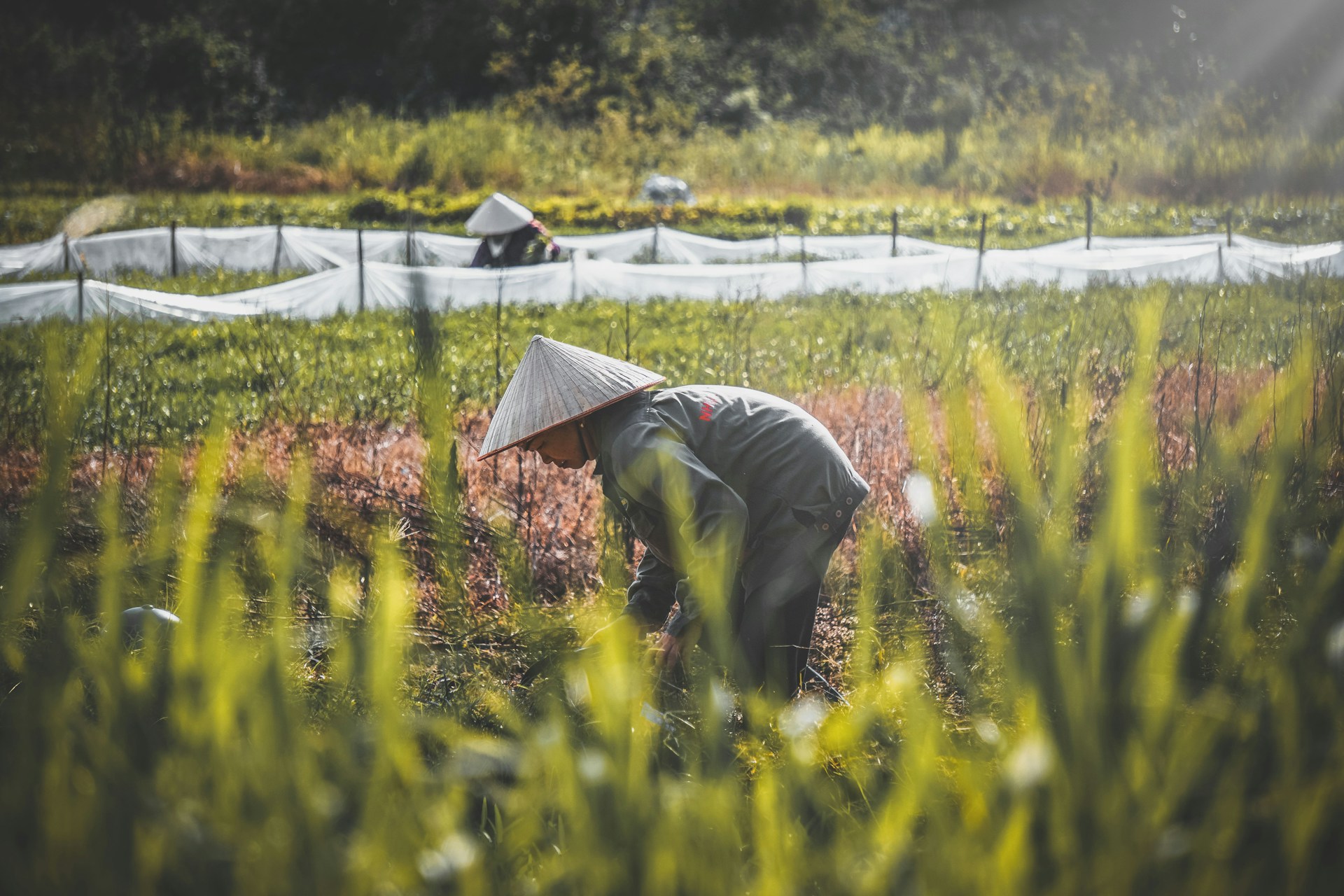
Vietnam is pioneering sustainable rice farming practices in the Mekong Delta, aiming to combat climate change effects and reduce greenhouse gas emissions. The region, responsible for over 50% of the country’s rice production, faces challenges like rising sea levels, increased salinity, and unpredictable weather patterns.
Innovative Farming Techniques
Farmers are adopting methods such as Alternate Wetting and Drying (AWD) irrigation, which reduces water usage and methane emissions. The use of drones for precise fertilizer application and the repurposing of rice stubble for livestock feed and mushroom cultivation are also gaining traction. These practices not only lower environmental impact but also enhance economic benefits by reducing costs and opening access to premium markets for organic rice.
In addition to traditional and manual improvements, smart farming technologies are being introduced. These include satellite-based soil monitoring, AI-powered crop health assessment apps, and mobile-based advisory platforms providing real-time weather updates and planting suggestions. Such tools are helping farmers optimize planting schedules, improve nutrient management, and respond faster to climate variability, significantly boosting productivity and resilience.
Development of Salt-Tolerant Rice Varieties
Research institutions like the Cuu Long Delta Rice Research Institute and Can Tho University are collaborating with international partners to develop rice varieties that can withstand salinity and drought. By incorporating genes from wild rice species, these new strains aim to maintain high yields and quality in challenging conditions.
Government and International Support
The Vietnamese government, with support from organizations like the World Bank and FAO, is scaling up sustainable rice farming initiatives. Projects like the Vietnam Sustainable Agriculture Transformation (VnSAT) have already helped farmers reduce input costs and increase profits. The goal is to expand these practices to cover an additional 1 million hectares by 2030, significantly cutting greenhouse gas emissions.
Future Outlook
As Vietnam continues to innovate in rice farming, the Mekong Delta stands as a model for climate-resilient agriculture. The integration of traditional knowledge with modern technology offers a pathway to sustainable food security in the face of climate change.
